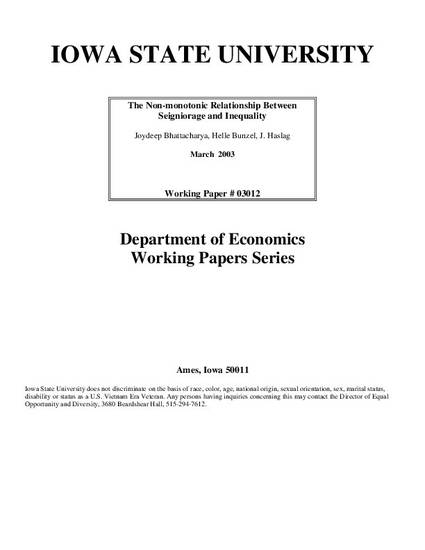
Article
The non-monotonic relationship between seigniorage and inequality
Economics Working Papers (2002–2016)
Document Type
Working Paper
Publication Date
3-1-2004
Working Paper Number
WP #03012, October 2001 revised March 2003 revised March 2004; Old working paper #10252
Abstract
Central banks typically find it difficult to turn off the "political pressure valve". This has important consequences for the types of monetary policies they implement. This paper presents an analysis of how political factors may come into play in the equilibrium determination of inflation. We employ a standard overlapping generations model with heterogeneous young-age endowments, and a government that funds an exogenous spending via a combination of nondistortionary income taxes and the inflation tax. Agents have access to two stores of value: fiat money and an inflation-shielded, yet costly, asset. The model predicts that the relationship between elected reliance on the inflation tax (for revenue) and income inequality is non-monotonic; in particular, the reliance on seigniorage may decrease as income inequality rises above a threshold. We find robust empirical backing for this hypothesis from a cross-section of countries.
Disciplines
File Format
application/pdf
Length
27 pages
File Function
This version: March 2004 (First version: October 2001)
Citation Information
Joydeep Bhattacharya, Helle Bunzel and Joseph H. Haslag. "The non-monotonic relationship between seigniorage and inequality" (2004) Available at: http://works.bepress.com/helle-bunzel/7/
